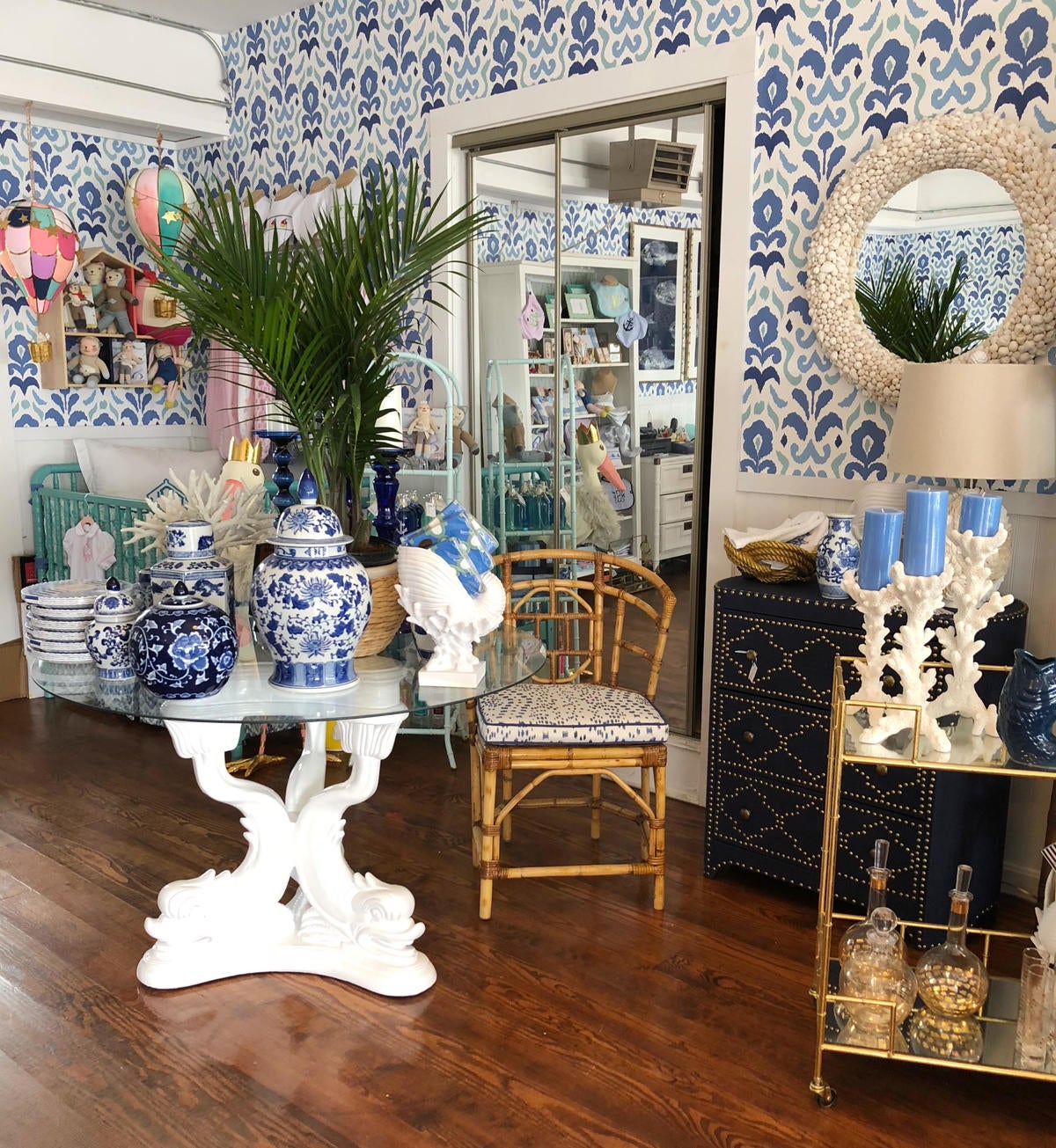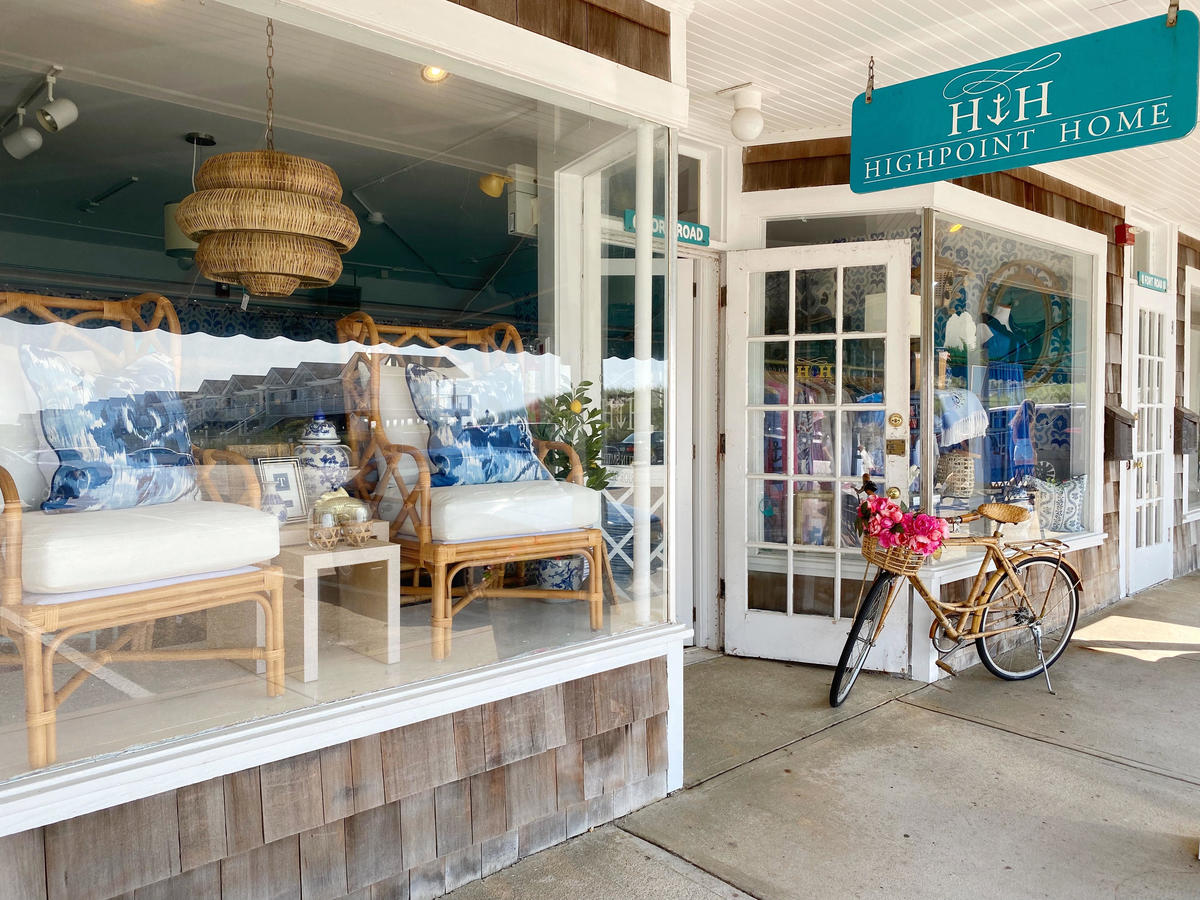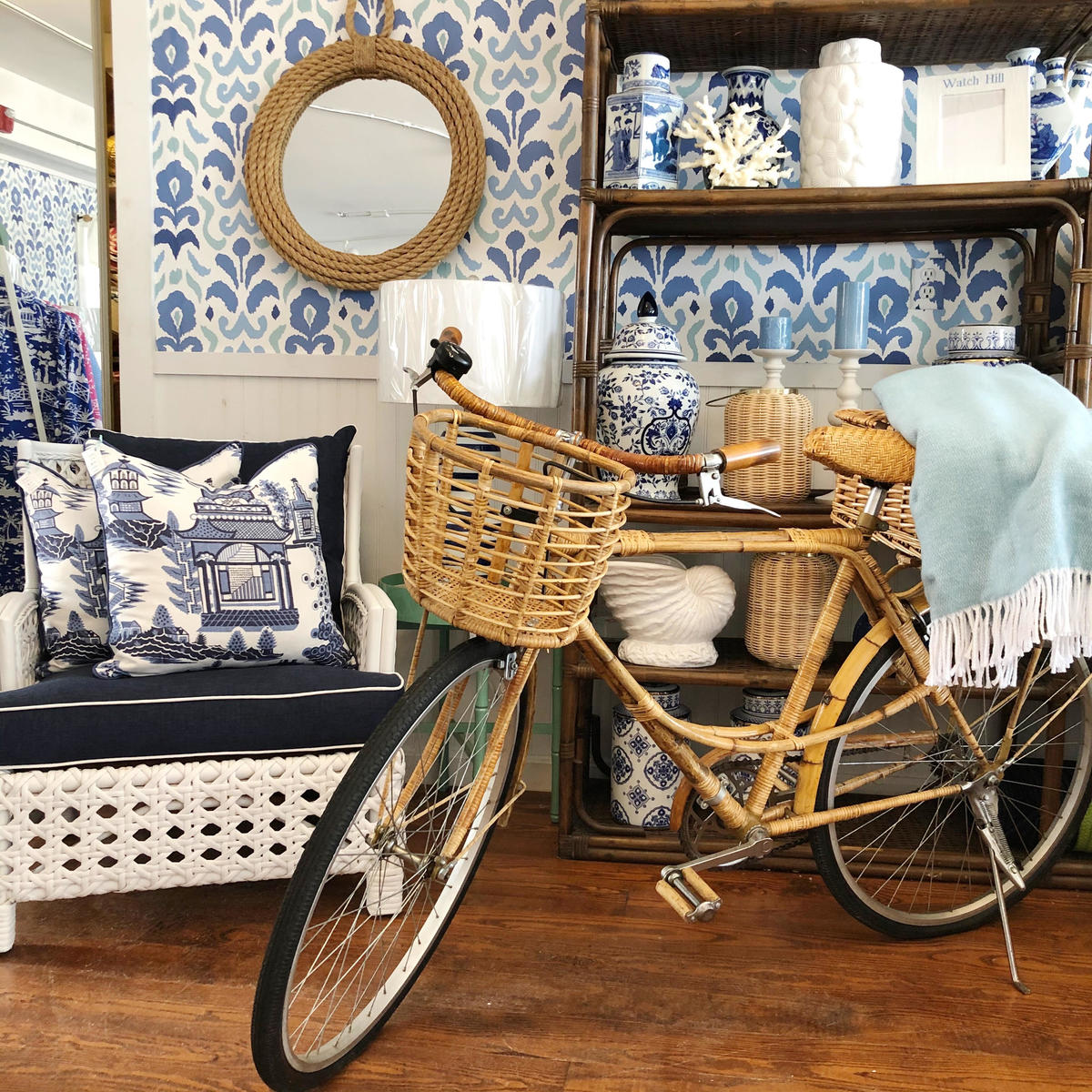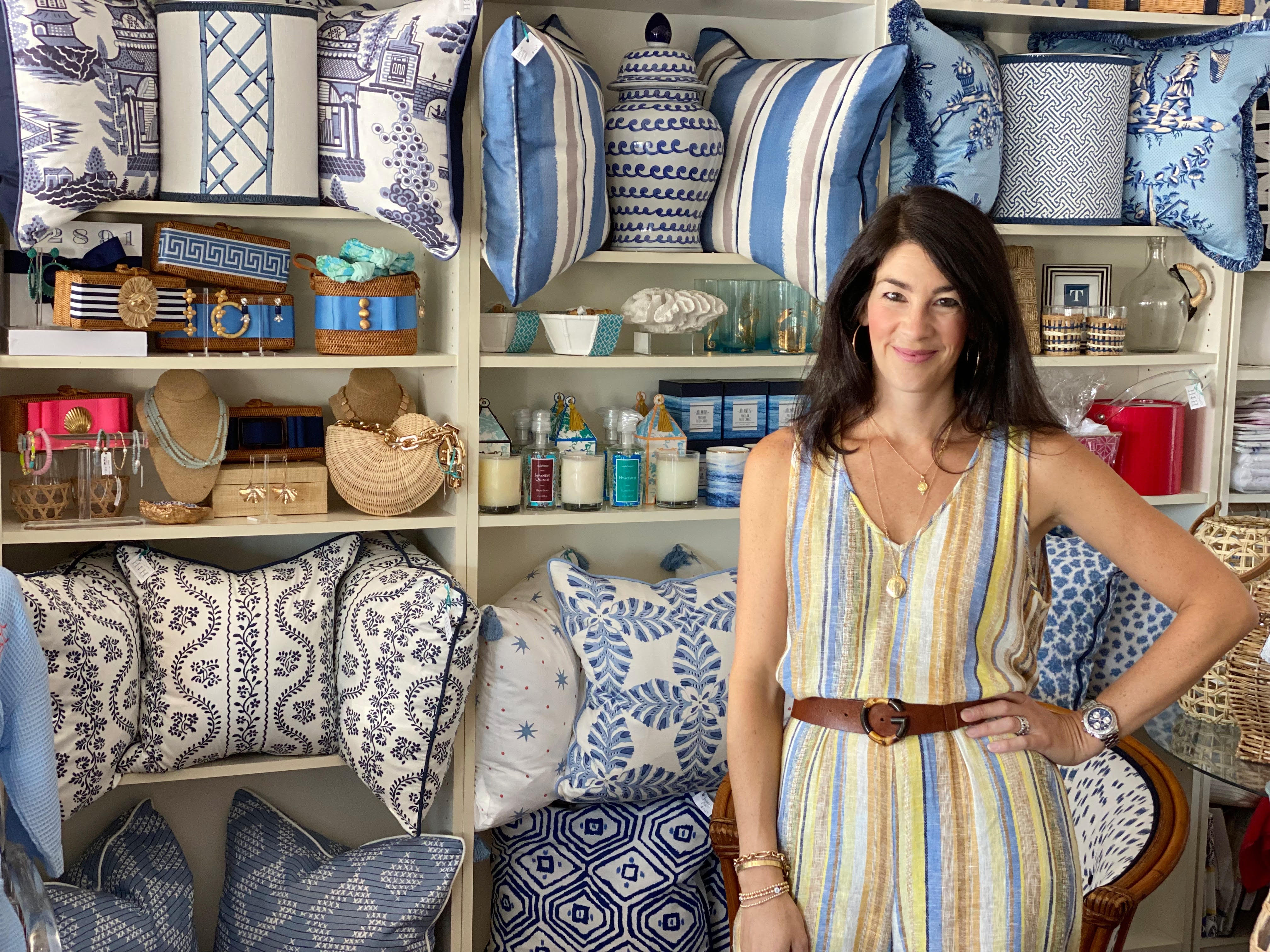In Business of Home’s series Shop Talk, we chat with owners of home furnishings stores across the country to hear about their hard-won lessons and challenges, big and small. This week, we spoke with Kaitlin Smith, who opened the homewares store Highpoint Home in the beach town of Watch Hill, Rhode Island, just over a decade ago. In a reverse of the typical career arc, she started down the retail path with aspirations of eventually launching her own interior design firm. Ahead, Smith opens up about nailing that transition, repeat customers and the possibility of an expansion.
What was your professional background before opening Highpoint Home?
I worked in fashion in New York, on the wholesale side, handling some of the department stores. Then I ended up leaving the city because I got married and my husband was from Connecticut, and our commute wasn’t going to work. I decided to go back to school for interior design, so I started a program and simultaneously opened this shop. It seemed like they would go hand in hand. Watch Hill is a seasonal community, so it felt like a commitment, but also like, “OK, I’ll try it out for a season.” I thought I could build the interior design business out from the shop. I had worked in stores—I actually worked in Watch Hill growing up—and I understand retail, so it just seemed like a fun thing to try. Eleven years later, I’m still in the same space.

What’s the vibe of your store?
Palm Beach meets New England. A lot of color, a lot of pattern, but also a lot of classic New England elements. I love vintage furniture; most of what I carry is vintage, whether it’s wicker or bamboo that I’ll have lacquered. Any kind of interesting furniture that can be reimagined, whether it’s painted or reupholstered—that’s what sets my shop apart from others. What you find in here, you’re not going to find in big-box shops.
Who is your typical customer?
Locals. That is an aspect of this seasonal business that I love—it’s so many returning faces every summer, people who have homes here. They want to come in every summer, maybe just to refresh their home a bit and get new pillows or a new lamp. There are lots of parties here in the summer, so I see a lot of local customers who will come in for a hostess gift or a wedding gift. That being said, Watch Hill is certainly a destination now, and I do get a lot of day-trippers. Anyone who loves color is my customer!
There are a lot of customers who want a little guidance. They may not be looking for an interior designer, but I’m happy to help them if they come in and say, “Hey, take a look at my living room. I just bought a new sofa. What pillows do you think would work?” It’s often people who aren’t making the full commitment of redesigning their whole house, but they want more than just the internet to figure out what they want.
And your firm grew out of the shop?
I never had the experience of working for a great interior designer. It was the opposite: going off on my own and making my own mistakes. In the beginning, it was a lot of local customers coming in and saying, “Hey, can you come over and help me with a rug?” I [went from] a small start, with little projects, to taking on renovations, and then ultimately full-house, new-construction projects. Like many things, it grew with experience.
Do you have a favorite vendor or a vendor relationship you’d like to shout out?
There are so many great lines in the shop. I do a lot with bedding, and I love Matouk. I love the fact that it’s made locally in New England. I try to use as many local vendors as I can. That is another aspect with a small business that makes it feel special and unique—something very different than a big-box store.
What about one of your favorite items in the store, something that makes you smile whenever you walk past it?
The pillows are ever-changing, and they brighten up the shop. They’re something I’ve had in the shop since the beginning that sells really, really well.
That was my next question: What flies out the door?
Fabric wastebaskets. People love them because it’s something pretty that would be otherwise utilitarian. They add a little something to a powder room. Those sell really well. And again, the pillows. People love to see the combinations that I come up with. Many of these houses have been in families for generations, and you look at the same thing over and over every summer, and pillows can change the look of a room.

What advice would you give yourself if you could go back to opening day?
Because the season is so short here, it feels intimidating. It’s this constant balance of making sure that the shop is really stocked, but you don’t want to be left at the end of the season with a ton of inventory. Over the years, I’ve learned that you certainly need the inventory to make the sale. That balance is something that I shied away from early on; I wasn’t as willing to reorder or keep as much product in here.
How else do you handle seasonality? You live in Connecticut most of the year and then you’re in Watch Hill for the summer, right?
Yes, exactly. I live in Connecticut, but not far. My family has lived in Rhode Island for a long time and always summered up here. My husband and I met in Watch Hill, and his family summers here as well. The businesses here are open from basically Memorial Day to Labor Day—many of the shops don’t have heat. It is truly a seasonal business and that has its challenges, but it feels very fresh every single year. When I open Memorial Day weekend, my local customers are dying to get in to see: What does the shop look like? What is the vibe for this season? Not to say that every season I’m reinventing myself, but there needs to be newness. During the off-season, I travel a lot with my mom sourcing furniture, especially vintage furniture.
What is your biggest everyday challenge?
Trying to be everywhere. I love being in the shop and I want to be here and help customers, but it’s challenging because I’m also running my interior design business, and I have three children. My aunt helps in the shop when I’m not here, and it’s encouraging to know that the store is in good hands when I’m bopping around finding new pieces, or working with clients, or just being a mom on the beach.
What about the biggest existential challenge?
Space. My shop is very small, about 600 square feet. I love the fact that it’s all packed in here and I’m constantly able to move the inventory, but there’s always the question—would I want a bigger space? Would I want something that may be closer to a showroom, to have more furniture? That’s something always in the back of my head, whether I want to expand. Early on, that felt very intimidating. Now, after 11 years, I have more confidence in business. In general, brick-and-mortar has evolved a lot. I think people want to shop small and have that curated experience.

How do you convey to customers that what you’re offering is more worthwhile than cheap stuff on the internet?
One of the biggest reasons the store works is that what they’re seeing they can’t easily find online. The majority of the product is custom. You can’t find the pillows online. I have fabric ice buckets that a company makes for me. Another reason that the seasonal aspect works is that when you’re on vacation, you want to bring something home with you. For the day-trippers or people renting a house, I think that’s a big aspect: “I bought something in Watch Hill that I’m bringing back to my other house.” I have so many customers who come back every summer and say to me, “Five years ago, I bought this shell hurricane from you and I use it in my house in Florida and just love it.” They’re not nickel-and-diming what they buy in here.
Are there challenges specific to Watch Hill? There is the seasonality, but are there other aspects of the town that feel unique?
Like so many beach communities, parking is always an issue. There’s never enough. As Watch Hill has grown to be more of a destination, it’s bringing more people, which is good for the business, but infrastructure is a challenge. What sets it apart from a place like the Hamptons is it feels like a much smaller community. Most of the shops here are independently run, many of them by the same family for a long time. You don’t drive into town and see these big brands. And most shops are run by the owners—in this day and age, that is unique for retaill.
What’s a great day as a shop owner?
It’s great to be crazy busy, but I think a steady day is the best day, because you’re able to actually connect with your customers. You don’t feel like you’re running around, trying to get people checked out. When it’s steady and a lot of familiar faces are walking through the door, that’s a great day.
Homepage photo: Courtesy of Highpoint Home





























